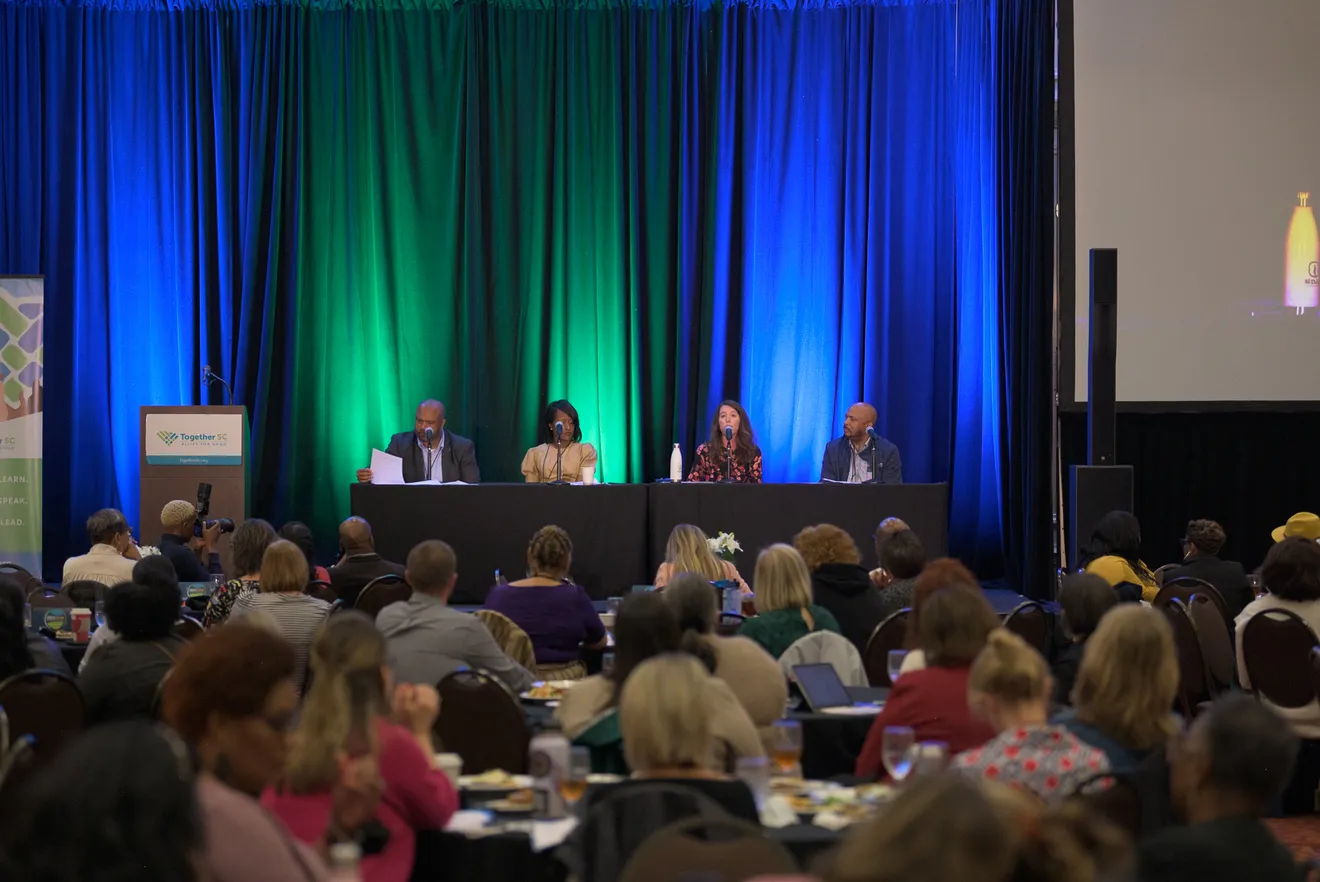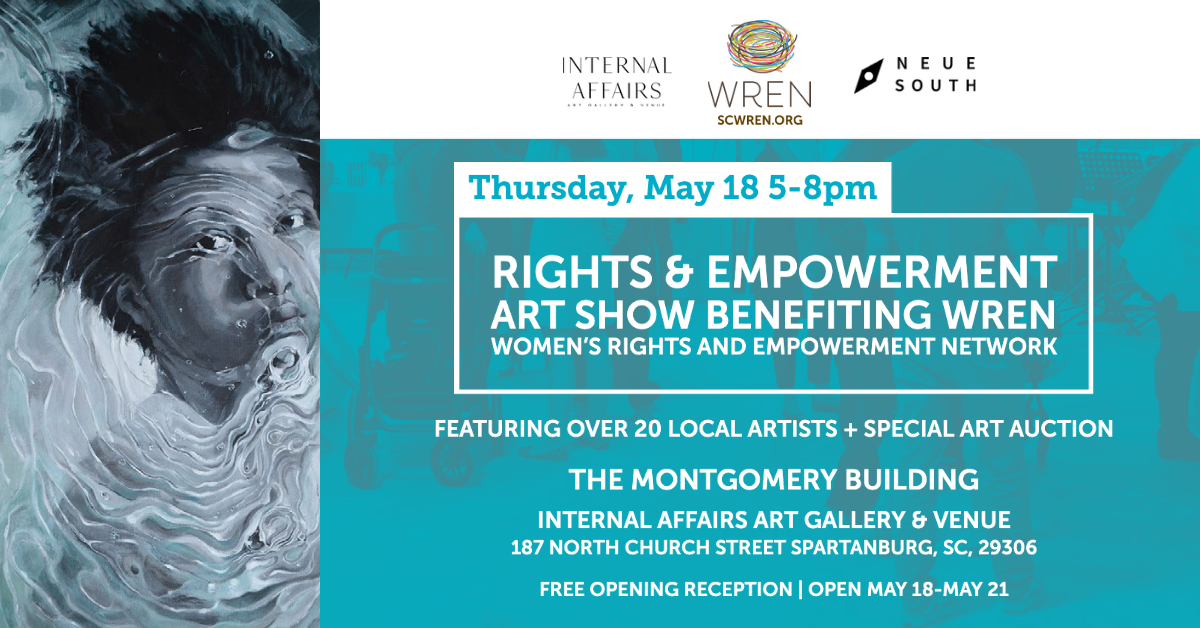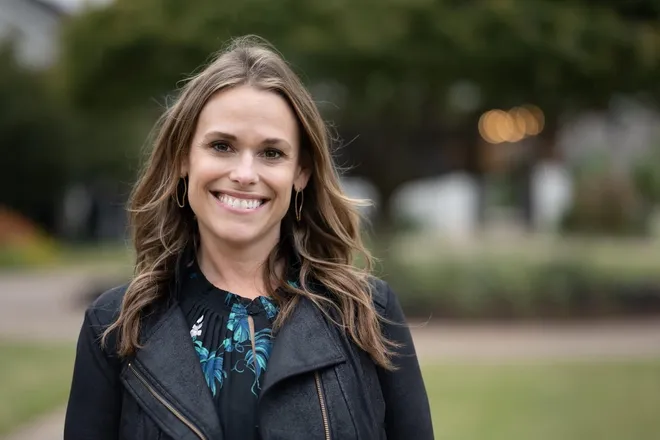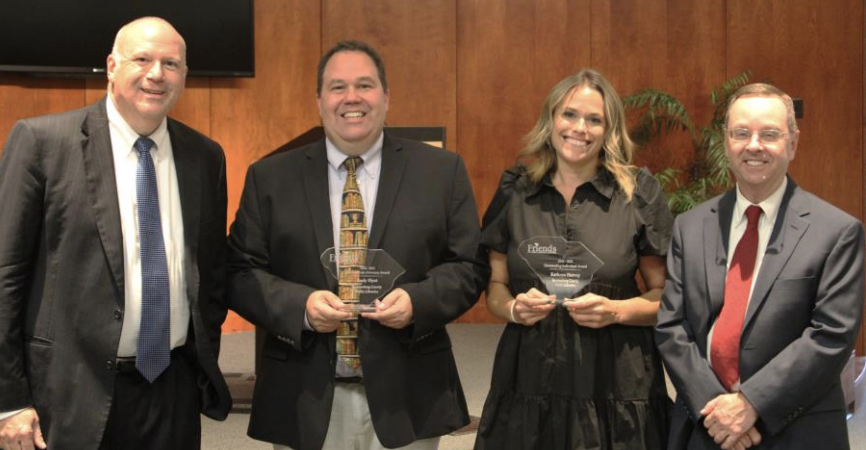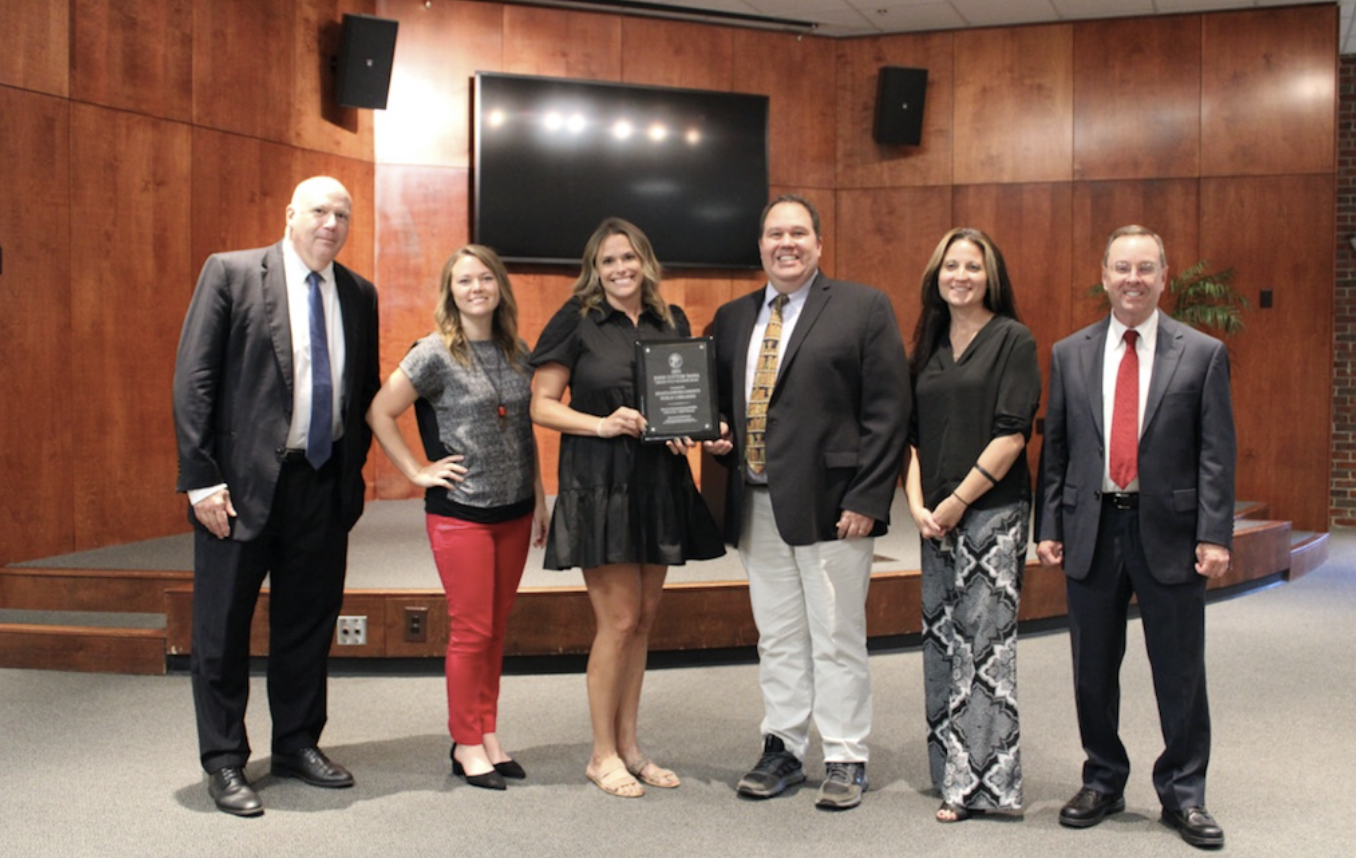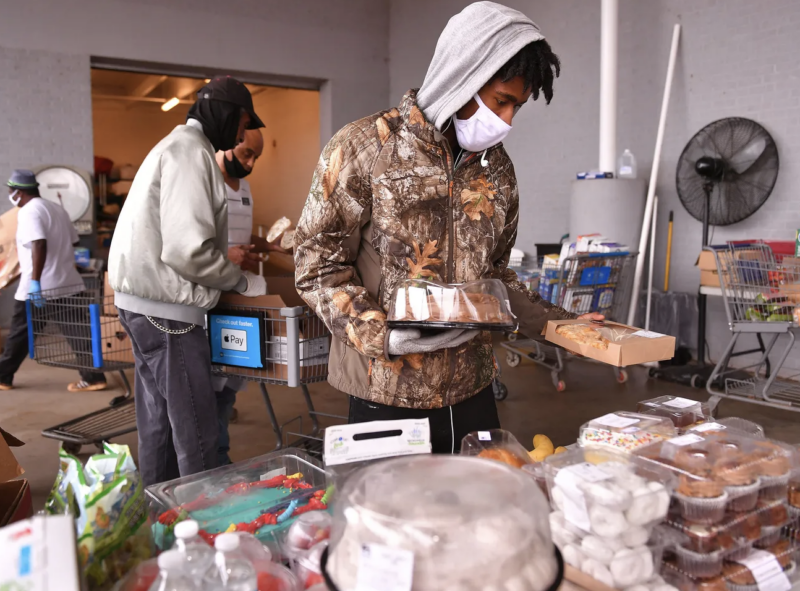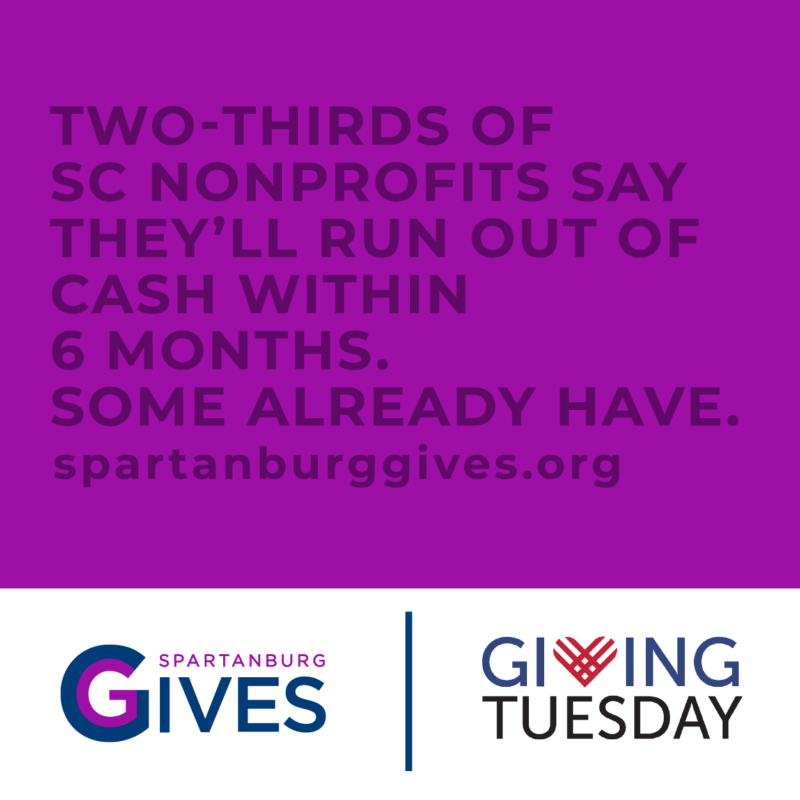SC nonprofit leaders gather in Spartanburg, tour neighborhoods to talk inequity issues
Eva Wen
Herald-Journal
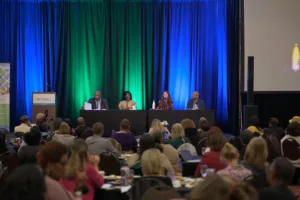
The panel speakers at Together SC Nonprofit Summit, 2022.
Madeleine McGee has seen a great need in nonprofit work to address inequities since the beginning of the pandemic. As a leader to nonprofit, corporate and government partners across South Carolina, McGee has heard great speeches on equity from leaders of different organizations.
But during last week’s Together SC summit in Spartanburg, she stressed the urgency for partners to take concrete actions.
“Every time we let something slide, it’s another generation of kids that are disadvantaged because we haven’t tackled the issues,” McGee said. “We don’t want kids growing up, watching the violence that happened against Black people, and wondering why they’re being treated differently.”
McGee is the president of Together SC, a consortium of more than 700 member organizations dedicated to community service and leadership across the state. Around its 25th anniversary, Together SC hosted its nonprofit summit in Spartanburg with the theme “Urgency Now.”
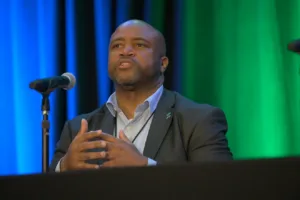
Mitch Kennedy, Assistant City Manager, speaks at the summit
After touring the north side, south side, and Highland communities, Spartanburg nonprofit leaders joined a panel hosted by Assistant City Manager Mitch Kennedy to discuss the roles of partnerships and collaboration.
A history of injustices in Spartanburg
For a period of following urban renewal in the 1960s and 1970s, the north side, south side, and Highland communities were riddled with concentrated poverty, drugs, and crimes.
Former representative Brenda Lee Pryce speaks at the summit. Pryce is also the co-author, with Beatrice Hill, of the book South of Main, documenting the history of Spartanburg’s south side and urban core during urban renewal.
When the federal government started the “war on poverty,” many of the less-maintained homes concentrated in the Spartanburg urban core were condemned and demolished, displacing many low-income, majority Black renters and homeowners to concentrated government housing complexes.
The legacy of urban renewal and racial discrimination remains visible in different Spartanburg neighborhoods.
The city of Spartanburg passed a resolution in September 2020 acknowledging systematic racism and with an apology to Black residents “for racial injustices and long-lasting inequities” that have resulted from past city policies.
Community outreach in Spartanburg
Patrena Mims, executive director at The Bethlehem Center in Highland, notes concentrated poverty is still visible today in much of Highland: Norris Ridge and Prince Hall apartments, and so on.
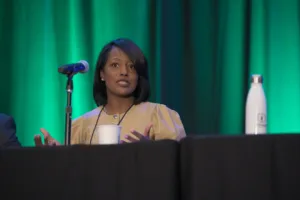
Patrena Mims, Executive Director of The Bethlehem Center, speaks at the summit.
“In the past five, six years,” Mims said. “We have really begun to do the work of healing some of those deep-seated wounds that we’ve had as a community to deal with those issues. It really starts with saying ‘I’m sorry’ and really have the community as the driving force for what happens in Highland.”
With the legacies of urban renewal and decades of racial discrimination, apologies and reconciliation are often met with resistance and distrust. For the president of the Northside Voyagers, Tony Thomas, his work with the community hasn’t always been straightforward. The Northside Voyagers is a resident leadership team that works to develop programs and affordable housing through partnerships. The group has dealt with talks of gentrification.
“When we talk about reconciliation, we have to know that sometimes when we come in and approach to do things for people, we’re still going to be met with resistance,” Thomas said. “Reconciliation means you engage people in a new way so that they will have a say in things that determine the outcomes of their lives.”
PAL (Play, Advocate, Live Well) Executive Director Laura Ringo recognizes reconciliation starts with more diversity in staff and board members. About a decade ago, Ringo received a phone call from Kennedy advising for PAL to have a more diverse board in order to have an impact in the community.
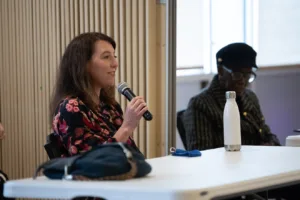
Laura Ringo, Executive Director at PAL (Play, Advocate, Live Well) speaks at the summit.
“It’s an ongoing process. We’re really trying to slowly shift and make sure that we’re representative of the community, but we also want people to want to be there, people who are passionate about the mission and the work we’re doing,” Ringo said. “Mitch [Kennedy]’s call was what we needed.”
Community work in Spartanburg through partnerships
Over the years, the Northside Development Group and The Voyagers have worked with developers to build new affordable, mixed-income and senior housings including 500 Northside Station and The Ellington. Thomas has witnessed more people in the community becoming homeowners.
“The whole theory behind the northside initiative was to meet people where they are and help them with economic mobility,” Thomas said. “You couldn’t just come in and say someone needs an 800 credit score. It’s about understanding that the threshold is going to be something that you can change. If you set your standards very high to start with, the community would think it’s futile and think they don’t have a chance.”
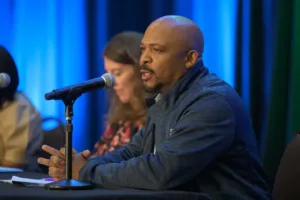
Tony Thomas, president of Northside Voyagers and Community Engagement Coordinator speaks at the panel during the summit.
The Bethlehem Center has opened the Highland Early Learning Center, and United Way is working to relocate Norris Ridge residents to Robert Smalls Townhomes with much better living conditions.
PAL secured federal grant funding to build trails that will connect some low-income pockets of Spartanburg to other areas.
The three organizations at the panel have worked with each other, the city, the county and corporations to bring about such changes. For Mims, working with the city and the Northside Development Group has helped the Bethlehem Center elevate discussions, bring in partners, and avoid pitfalls. But for all three, it comes down to the constituents.
“In building trails, we’re working with individual property owners and going through property owner by property owner,” Ringo said. “In a one-mile segment, we have more than 20 property owners. And we’ve learned if we don’t partner well, if we’re not respectful, and if we’re not honoring the people through conversations, the whole project can easily get shut down.”
According to Neue South founder Kathryn Harvey, who helped with the summit planning, Together SC chose to hold a conference in Spartanburg because of its work through the lens of equity.
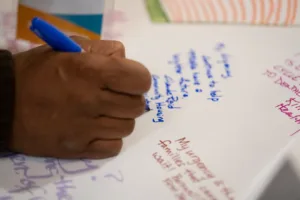
Together SC Nonprofit Summit, 2022
McGee echoed Harvey’s recognition and stressed the importance of meaningful salaries and benefits to those working for the community. According to McGee, there are 64 job openings in the nonprofit sector across South Carolina.
“The nonprofit sector has always had meaningful work, but we haven’t always had meaningful salaries or meaningful benefits,” McGee said. “You can do meaningful work and not have to depend on salary if you come from some money, but part of what we’ve got to do is address the inequity of that.”


